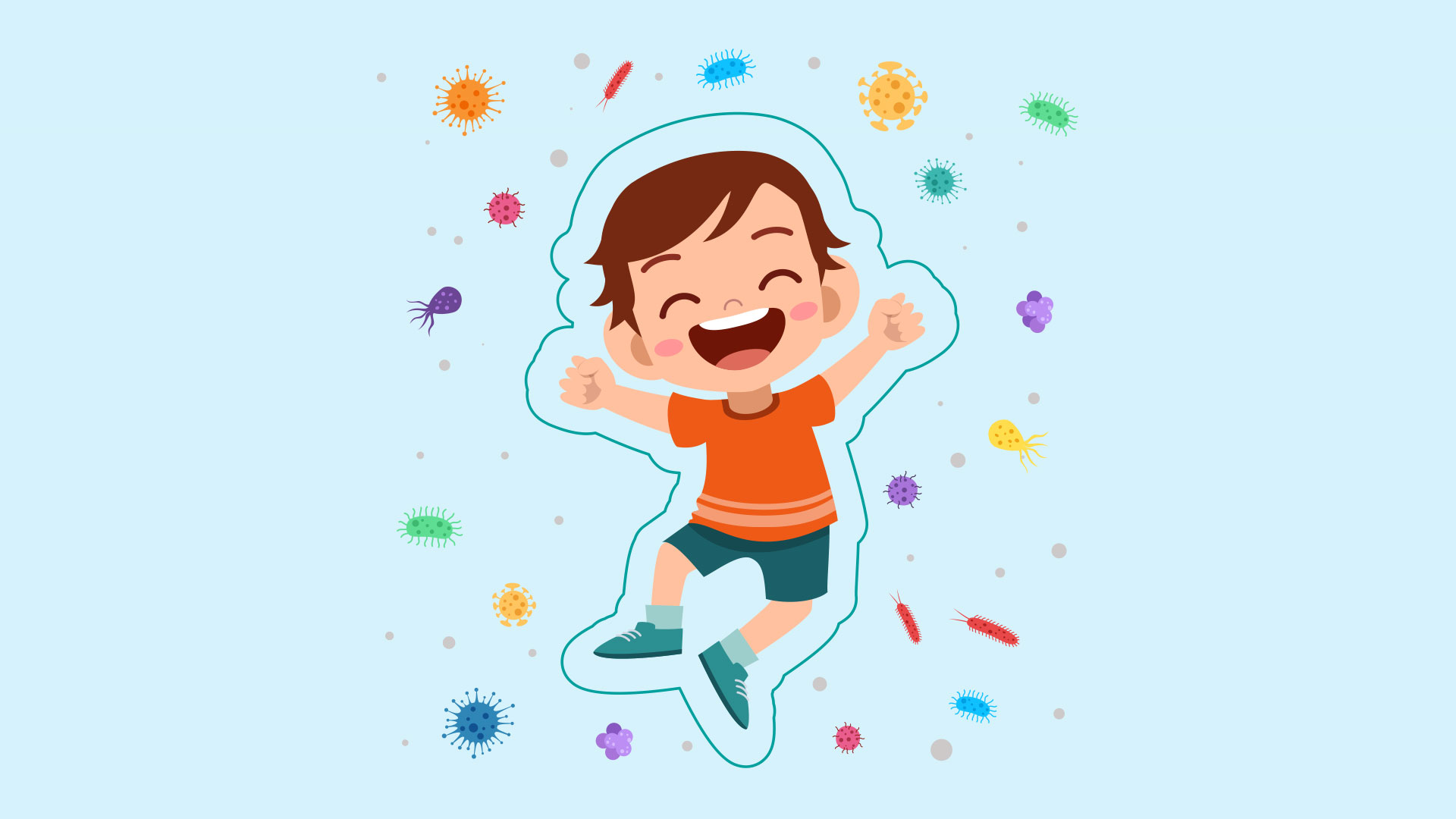Vaccination is one of the most effective ways to prevent diseases.
Vaccines help the body’s immune system to recognize and fight pathogens like viruses or bacteria; they protect against more than 25 debilitating or life-threatening diseases, including measles, polio, tetanus, diphtheria, meningitis, influenza, tetanus, typhoid and cervical cancer. Furthermore, infectious diseases can easily cross borders, and infect anyone who is not protected (e.g. Ebola/Zika/COVID-19)
What is a vaccine?
A vaccine is a product that helps the body to recognise and fight viruses or bacteria by stimulating the immune system to produce antibodies to a specific disease. It is much safer for your immune system to learn this through vaccination than by catching the diseases and treating them. Once your immune system knows how to fight a disease, it can often protect you for many years.
Vaccines are usually administered through needle injections, but can also be administered by mouth or sprayed into the nose. Nearly everyone can get vaccinated, however, due to some medical conditions, some people should not get certain vaccines, or should wait before getting them.
Having a vaccine also benefits your whole community through “herd immunity”. If enough people are vaccinated, it is harder for the disease to spread to those people who cannot have vaccines. For example, people who are ill or have a weakened immune system.
Vaccination coverage is the best indicator of the level of protection a population will have against vaccine – preventable communicable diseases. WHO recommends that on a national basis at least 95% of children are immunised against vaccine-preventable diseases (VPD)
Vaccines prevent up to 3 million deaths worldwide every year.
Are vaccinations safe?
The safety and effectiveness of a vaccine have to be thoroughly tested before they are licensed; and safety continues to be monitored with any rare side effects that are discovered being assessed.
Research shows that immunisation is the safest way to protect your child’s health. You are far more likely to be seriously injured by a vaccine-preventable disease than by a vaccine. Many more illnesses and deaths would occur without vaccines! For example:
- tetanus can cause extreme pain, muscle spasms (lockjaw) and blood clots
- measles can cause encephalitis (an infection of the brain) and blindness
- many vaccine-preventable diseases can even result in death.
What are the side effects of vaccination?
All medicines can cause side effects, but vaccines are among the very safest. Side effects from a vaccine are usually minor and temporary, most are mild and do not last long. The most common side effects of vaccination include:
- the area where the needle goes in looking red, swollen and feeling a bit sore for 2 to 3 days
- babies or young children feeling a bit unwell or developing a high temperature for 1 or 2 days
Serious side effects can occur but these are extremely rare. It is rare for anyone to have a serious allergic reaction to a vaccination. However, if this does happen, it usually happens within minutes and can be promptly dealt with by the person who vaccinates you or your child and is trained to deal with allergic reactions.
Why is immunisation uptake not always as desired?
The World Health Organization (WHO) recently listed vaccine hesitancy as one of their top 10 biggest threats to global health. ‘Vaccine hesitancy’ refers to delay, reluctance or refusal of individuals to take up vaccination for their children or themselves. Local data is being collated and it appears that vaccine uptake in Gibraltar is lower than the WHO recommendation of 95%. This was evident in 2008 with the rise in cases of measles on the Rock. The Director of Public Health has recently expressed concerns about this, highlighting that the low vaccination rate of some vaccines could mean further outbreaks in the future!
How long does immunity to an illness or disease last?
The duration of immunity varies with different diseases and different vaccines. For example:
- Tetanus vaccine can last up to 30 years, after which time a booster dose may be needed
- Whooping cough vaccine gives protection for about 5 years after a full course
- Influenza vaccine is needed every year due to changes to the type of flu virus in the community
The recommended timing of vaccine doses aims to provide the best immune protection to cover the period in life when vulnerability to the disease is highest.
Vaccination protects you and your children against potentially severe ill health.
With the Influenza (Flu) season imminent and the uncertainty of how the COVID -19 pandemic will steer, the public are advised to take advantage of the flu vaccine when it becomes available.
Influenza is a highly infectious disease with symptoms including fever, chills, headaches, fatigue, and joint or muscle aches; symptoms on par with the COVID-19 infection. Even those who are normally in good health are left feeling quite unwell with the flu; this is exacerbated for those with lowered immunity. Research shows that globally up to 650,000 people die each year due to flu or flu-associated complications.
Read more on vaccines and vaccination in Gibraltar: https://healthygibraltar.org/infections/vaccinations/










